He was born and has lived in Los Angeles. His music is known in 100 countries all over the world. His compositions resound even in the skies of Russia where this American composer of Russian descent has never been. The Russian Pobeda (“Victory”) Airlines uses three of his pieces of music during its flights—motifs of love for his faraway historical homeland and nostalgia for it.
In the titles of his CDs he is referred to as John Sokoloff. For Americans it sounds familiar, this is his musical pseudonym. But his name in his passport is Ivan Sokoloff, and his family and friends call him simply “Vanya” [a diminutive form of the name Ivan].
He wrote his first composition after falling in love with his classmate at the age of eighteen, and since then he has set the world around him and the lives of the first wave Russian emigres (who after many wanderings had found refuge in the West Coast of America, in California) to music.
If we listen to his music attentively, we will find in it some European, some Latin American, some Middle Eastern motifs, a few Spanish motifs, along with a dose of African-American blues and jazz. And it is no wonder—as a citizen of multiethnic America he has always loved his country. “My heart is American, yet my soul is Russian,” John often says.
***
—My paternal great-grandfather, Ivan Ivanovich Syrnev, was a surgeon, a general who fought in the Battle of Shipka Pass and was awarded the St. George’s Order. My maternal great-grandfather, the Imperial Army Colonel Vasily Ivanovich Shariy, fought in the First World War and was awarded the St. George’s Cross.
Both my paternal and maternal grandfathers left Russia in 1920 and lived in France, Germany, Yugoslavia, Morocco, and lastly, in 1959, they settled in Los Angeles in the USA where a community of Russian refugees had gathered. My father, Alexei Mikhailovich Sokoloff, was born in Normandy, France. My mother, Tamara Ivanovna Shariy, was born in Yugoslavia. It was in Casablanca, in Morocco, that they met. My dad was the choir director at the Transfiguration Cathedral in Los Angeles for fifty-seven years, and my mother worked as a hospital nurse.
Most of the Transfiguration Church’s parishioners were representatives of the first wave of emigration. These were people who had lost their families, their country, and their property. For seventy long years they upheld their own culture and did not assimilate into the American way of life as fully as subsequent waves of emigration did. Today some are still trying to preserve their national culture, but there are few such emigrants as most young people prefer to intermarry with Americans and fuse into the “melting pot” of American culture.
As for us, although we lived in the USA, our cultural milieu was Old Russian. We remained attached to this cultural identity. When I started kindergarten, the teacher couldn’t understand what was written on my exercise-book because it was written in Russian – “Ваня Соколов» (“Vanya Sokoloff”). In fact I couldn’t speak English and couldn’t write “John Sokoloff” in English at that time. My mother held that my primary language should be Russian because I would learn English at school anyway.
During the school year we had Russian school at the cathedral, where we had classes in Russian language, Russian history, Russian geography and catechism lessons. We went to church regularly, observed fasts and Russian customs. Women would bake kulichi (traditional Easter cakes) and make paskhas (traditional cottage cheese Easter desserts) for Pascha. We joined various cultural organizations like the Russian Scouts and Sokols (“Hawks”) and went in for sports. Once a year we would celebrate the “Day of Implacable Opposition to Communism” and danced at Russian balls.
I was surrounded by people who had personally known Rachmaninoff and Stanislavsky; I particularly appreciated elderly people and associated with old men and women in my childhood. Many of them “kept their suitcases packed” and were ready to go back to their beloved homeland at any moment, naive as it seems. My grandad, for instance, would always carry a handful of earth from his motherland in a tiny plastic box in his pocket.
At one time I would drive one woman to the Hollywood Cemetery where her husband, a sailor, was buried. She told me that many years earlier Rachmaninoff would call on her in Santa Monica and conduct his rehearsals in her house. I asked her many questions about him. I was deeply impressed by her stories, and they had a great influence on my music and poetry.
—But time marched on and this unique world had to disappear sooner or later…
—When I was very young I believed that that world in the Russian Hollywood would never cease to exist. It was the world of Stravinsky, the world of Rachmaninoff, who lived in Los Angeles and loved Russia. Rachmaninoff resided not far from where we are now, at Elm Drive, Beverley Hills, and birch trees still grow in front of his house. Rachmaninoff was strongly opposed to the Soviet regime, yet he worried about Russia very much. In 1929, he along with some other celebrities co-signed a letter protesting the conditions in the Soviet Union, and consequently his work was banned in the USSR for decades. The composer spent twenty-five years in the USA and performed often. The American audience loved and appreciated him. For some years Sergei Vasilievich Rachmaninoff was a parishioner of the Church of the Holy Theotokos in Los Angeles where the funeral service was performed over him in 1943. I dedicated my piece Coronado Terrace to Rachmaninoff.
I composed it on the street with that name while thinking about Rachmaninoff and watching a film on him on a Russian TV channel. When I finished this piece, I suddenly remembered that I had done it less than a mile away from the church that Rachmaninoff had attended and where a funeral service had been performed over him. I started on my seat when I realized it!
I felt as if I were looking through a window and seeing old Russia, about which I had heard so much but where I had never been. And that window was slowly closing… The majority of the Russian people who had told me so much about that Russia were dead, and the world that they had kindly shared with me no longer existed. And then I composed, “Through a Window”.
—And when did this window close completely?
—In 1990. I had a friend, and his father, Elmurza Mistulov, was our mentor. Ossetian by birth, he was the embodiment of Russian culture in Los Angeles: He staged performances, and organized school concerts in which we took part. My grandfather and Elmurza passed away in the same year. And though my music teacher, Vyacheslav Leonidovich Ordynsky (a native of Dnepropetrovsk), was still alive, in that year I felt that the window had closed.
—What are the places of Los Angeles you feel drawn to in particular?
—If you spend your whole life in just one place, it becomes a part of you. I love Santa Monica. Sergei Rachmaninoff used to walk there along the ocean. Once somebody asked him why he preferred walking a lot on the shore instead of composing his works of genius. And he replied: “As long as I am not walking, my fingers are not running.” It means that you cannot stay at home and just think of music; you need to live.
I love Hollywood because it has three churches, and I grew up in this environment. I love San Francisco, the Russian River, and California in general.
—And who are the clergy you have the fondest memories of?
—Archbishop Anthony (Medvedev) of San Francisco is one of them. He had such a humble soul! Once I was asked to drive him back home from a Russian festival. I looked around wondering where the archbishop was. And I was given the following answer: “He has probably gone there on foot.” It turned out that he had walked half a block by then and I had to catch him. Such a humble archpastor served here!
He would come to the Russian River resort area where we would spend our holidays. I remember how we vested him there in the church. Both I and Boris Dmitrieff (now Archbishop Kirill of San Francisco and Western America) were Archbishop Anthony’s acolytes. Borya (the diminutive form of the name Boris] was also an altar server with my grandfather, Fr. Michael Sokoloff, in San Francisco. By the way, it seemed to me that Borya’s grandmother had the most perfect Russian name and patronymic in history, namely Agrippina Dimitrievna. My grandfather served in a church of the Orthodox Church in America (OCA), and my father was the choir director at a ROCOR cathedral. My father never differentiated between various Church jurisdictions and always treated their representatives equally. I was baptized at home: both Archbishop Anthony (Sinkevich) of Los Angeles (ROCOR) and Archpriest Dimitry Gizetti, rector of the Church of the Holy Theotokos (OCA), who was related to the ever-memorable Patriarch Alexei II, were present at the Baptism.
I personally never believed that we in the diaspora should look down upon people in Russia and treat them in a haughty manner. We don’t have the moral right to teach them how to live their lives. We can only speak about our own experience and share it, and our experience is really unique. But I don’t think we are better than those who lived in Russia for all those years in any respect.
—In 1988, your parents made up their mind to visit their historical motherland for the first time in their lives…
—And until 2011 they would travel to Russia and Ukraine every other year. They went on pilgrimages to churches, monasteries and convents; travelled even along the Yenisey River (for example, to the city of Irkutsk); visited Lake Baikal, the Solovki Islands, Tobolsk, and other cities. I never joined them. For me Russia is a romantic, unrealized ideal. It is unattainable.
—And a trip to Russia might be the beginning of a new stage in your creative work, right?
—Definitely! I have always felt that my soul abides in Russia because I grew up in a Russian Orthodox community. Our mother would put me and my little sister Natasha [a diminutive form of the name Natalia] to bed to Russian classical music. We would listen to songs by Lyudmila Zykina (1929-2009), the Alexandrov Ensemble, the works of Tchaikovsky, Rachmaninoff, etc. Every summer the Russian community would spend their vacations in the village of Russian River near San Francisco. From the 1950s till the 1970s it was an exclusively “Russian” village. We vacationed there fifteen years in a row. There is a town called Sebastopol nearby. We had no television there; people would read a lot in Russian and stroll together in the evenings. We heard only Russian speech around us.
The name of my first album is Vacation Beach. The memories of our vacations at Russian River are reflected in its compositions, such as “Calistoga” and “Slavianka”.
By the way, a composition from my debut CD was the featured theme for Moscow’s 850th anniversary official documentary, produced by the film director Tofik Shefardeev in 1997. Mayors of many large capitals in the world had copies of this documentary.
—It’s a sort of “cooperation at a distance”. You are observing what is going on in Russia with your peripheral vision and responding to these events by your creative work.
—We, Russian Americans, always feel whatever happens in Russia, whether it be joy or misery. On September 3, 2004, I composed a piece entitled Beslan [in memory of victims of the violent takeover of a school in the capital of the Caucasian Republic of North Ossetia in Russia by terrorists, in which 333 people were killed]. It is one of the saddest compositions have ever written. And recently, for the centenary of the martyrdom of the Imperial Family, I composed Waltz for Anastasia. It can be found on my new album. While I am not a monarchist, I never criticize those who believe in the restoration of monarchy in Russia. I grew up in America and am already used to democracy. Nevertheless, any person living in any country, whatever his views may be, understands that the murder of a royal family is a brutal act.
It is time to clearly determine what happened, who was responsible for the regicide, and to honestly disclose the names of the regicides and butchers. Russia won’t be able to awaken and move forward until then. It is impossible to build a country on lies, just as it proved impossible to build anything new on the site of the destroyed Cathedral of Christ the Savior in Moscow.
—You have to admit that the idea of visiting Russia haunts you.
—It would be wonderful! Every day I receive letters from different countries, and Russians understand my music on a deeper level than others. The letters that I receive from Russia are very deep. Some even put my music into verse.
—If you were to organize a concert in Russia, what would you choose as the venue?
—Above all St. Petersburg or Vladivostok. In 2014, producers found money and invited us to give a concert in Russia, but suddenly the Ukrainian crisis began and the Russian ruble collapsed, so I couldn’t take my musicians with me. And they are true professionals who represent the eclecticism that is inherent in my music pieces. I have a Russian violinist from St. Petersburg, Nickolai Kurganov, who is now artist of the Los Angeles Philharmonic; Alexander Podrezov (a descendant of the old emigres) plays the balalaika and the acoustic guitar; the three remaining members of my band are Tony Mandracchia (the electric guitar), Denny Croy (bass-guitar), and Craig Fundyga (percussion instruments). No wonder my music touches the hearts of people in many countries worldwide.
I have never been to Thailand, Australia, or Iceland, but I compose music and people respond: first in their hearts, and then by their letters and emails. I get good feedback from Russia, the USA, Poland, Bulgaria, Romania, Japan, Italy, Israel, Brazil, Argentina, and South Korea. People write that my music touches their souls and is in tune with their cultures.
It may seem odd to use the violin, the balalaika and the conga [a Cuban musical instrument] in the same composition. But I never ask myself how one or another piece of music should sound. I hear music inside me and pieces are composed “unintentionally” by themselves. I am of the opinion that if you begin to ask what this should look like, how this tune should sound, it’s the end of your creativity.
—What countries would you like to visit to enrich your experience, just for your spirit?
—I would like to visit South America, to climb Machu Picchu Mountain in Peru, to travel along the Amazon… I would be happy to go to Russia and to visit Russian churches of Paris too. It was in a church in Paris that my sister Natasha was married. The ceremony took place at the very church where our parents had once been married and where our grandfather, Fr. Michael Sokoloff, had served.
—Natasha is also a composer, isn’t she?
—Yes, she writes excellent music! But while the theme of “the old world” runs through my work, Natasha writes pop music. It can be said that her music complements mine and vice versa. Natasha resides in Canada and has her own band. She has lately released her first CD, which she recorded with the Budapest Symphony Orchestra, and she has received a grant from the state to record her second album.
Natasha’s voice type is soprano; she used to sing at the Los Angeles Transfiguration Cathedral and has put much of the church harmony to her creative work. The life of our family has always been church-centered.
When we were about four years old, we used to sing Russian folk songs and Soviet songs and knew such songs as “Moscow Nights”, “Dark Night”, and “Borodino” by heart.
In 1988, my grandfather and I attended a concert of the Alexandrov Red-Bannered Ensemble Choir that was performed in Los Angeles. It was the most memorable concert in my life, although I have attended countless pop concerts.
—You wrote your first rhyme at the age of four, and you have composed music since your youth. However, you studied management and marketing at a university …
—I wanted my education to bring me stability. I studied business and during my studies continued composing music. At university I would often run from the lecture-room to the music hall where there was a piano and where we rehearsed. I called one of the compositions that I wrote as a student, “P.O.M”. Nobody knew what this acronym stood for. By the way, this very composition was used in the documentary about Moscow.
—And what does it stand for?
—At university I took an exam in Production Operation Management (P.O.M.). I didn’t like that subject at all… As I was sitting at the exam I thought: “I will surely fail it...” Agitated, after the exam I dashed towards the rehearsal room and wrote this composition. I decided that if I passed the exam I would name this composition after that subject (P.O.M.). On the following day I learned that I had passed!
—After university you went into business and not music, didn’t you?
—For six years I worked as a floor covering sales manager and composed music simultaneously. To date I have composed over 400 pieces of music and recorded about 100 of them. Some of them are accompanied by my poems (blank verse poems, to be more exact); for example, “Her Voice” and “The Balloons Of Matilija”. The latter is a fairy tale with religious implications in which a balloon becomes a human being. As it looks down it sees the pain of life on the one hand and the goodness and joy of life on the other hand. Then it clings to a branch and dies. A tempest begins, darkness falls, and we don’t understand where the balloon is and what has happened with it. A rainbow appears and we at last see the balloon in a faraway world—it is young, free and alive.
—You were twenty-seven when you started seriously thinking whether you should carry on your business or do what you really enjoy.
—After selling floor coverings I ended up in the television industry. It seems I have worked in all possible spheres: First as a student I worked in fast food, then I built houses, sold newspapers over the phone, wrote articles for business journals, worked as a television assistant in Hollywood, and even made coffee for producers (it was the lowest-ranking position, but I needed to break into the TV industry).
—Did it hurt you?
—Of course, it did! I worked in Hollywood as an ordinary assistant for five years. I had to submit to people who were often grossly rude to me. Five years later I won through to this industry and became a composer for a popular show on CBS. At that time I made the acquaintance of the famous choreographer, Igor Moiseyev.
It was in 1991. Once I got a phone call from New Jersey and was informed that the Moiseyev Ensemble was on a tour to the USA. I approached the well-known actress Carol Burnett (the Carol Burnett Show hostess) for whom I worked and asked, “Do you want the Moiseyev Ensemble to perform here?” She found it incredible and couldn’t believe that I was able to arrange a meeting like that. So the ensemble came to perform here in Hollywood; and it was there that I met Moiseyev, who then was ninety-three[1]. I interpreted he and Carol’s discussions and thus I made friends with him.
I worked as a composer on TV for over a year, but ultimately I preferred to compose my own music rather than to write “custom-made” music. However complicated this world may be, there is always a choice for creative minds. I had a choice, too, and I opted for music.
John (Ivan) Sokoloff has released six albums to date. Outside the USA you can listen to his compositions on YouTube. He dedicated many of his pieces to Russia. His melodies are unique, and the Russia that he perceives and “sets to music” is a country that is unfamiliar, mysterious to us, a country that we’ve lost…






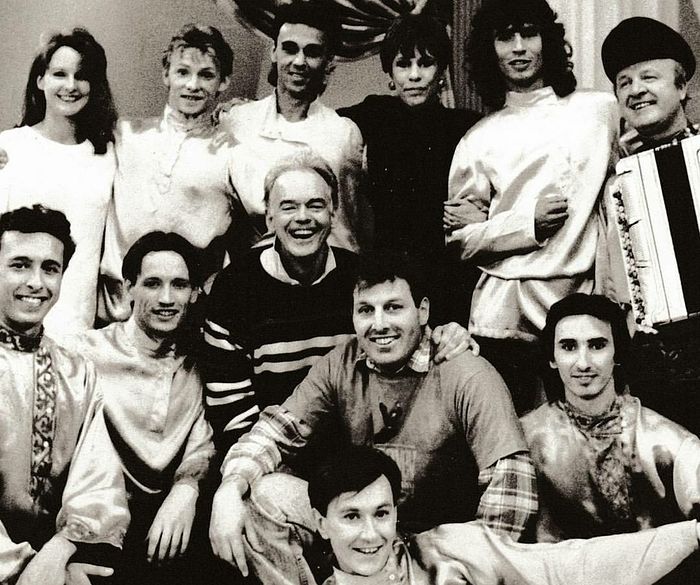
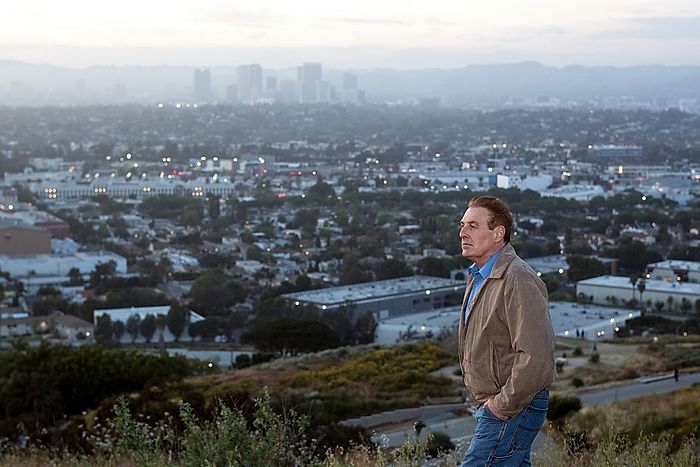
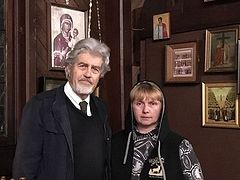
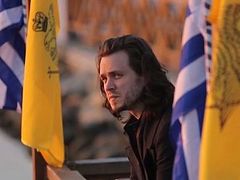
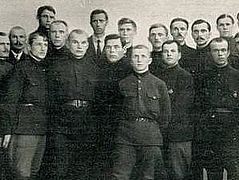
In Oct 1948 my widowed mother Sonechka my sister and I were fortunate to flee from Shanghai on an ex American troop ship bound for San Francisco
I grew up in that city attending both an American and the original Russian Orthodox church school at the Old Cathdreal in Fulton Street. My uncle had a small Dacha at Russian River where I spent many summers. I also went to a couple of Russian scout camps sleeping in tents . I remember going to hear the Don Cassack Jaroff choir singing at The Russian Centre I have fond memories of attending a lovely Mascarade Ball .
Russian at Heart Sonechka’s Story
By Olga Hawkes
A memoir about my family
It certainly resonates with my White Russian upbringing
I was born in Shanghai in 1942
My father Vladimir Emilich Rossi was born in St Petersburg in 1894 he finished the Imperial Ecole des Pages in St Petersburg in 1913 and fought on the Western front WW I and later Civil War in the White army He was severely founded in 1920 during one if the last battle in the Perekop region of the Crimea and miraclulously evacuated to Constantinople... lived in Yugoslavia and later drove taxis in Paris in the 1920s
He decided to go to Shanghai in 1929. He met my mother, Sonechka Balk who fled from the Bolsheviks as a 19 year old in 1924 to Shangha